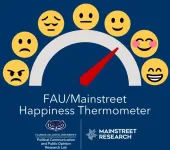(Press-News.org) (MEMPHIS, Tenn. – March 19, 2024) Fibrolamellar carcinoma (FLC) is a rare liver cancer with a poor prognosis if not addressed early with surgery. The disease is caused by a single genetic mutation that creates a fusion protein. Scientists at St. Jude Children’s Research Hospital and The University of Tennessee Health Science Center discovered an immune cell protein that can target and spark the destruction of FLC. Scientists found naturally occurring T cells in a patient with FLC were uniquely capable of recognizing the fusion protein. These cells provide a basis for developing a novel immunotherapy treatment approach for FLC. The findings were published today in Cell Reports Medicine.
Fusion proteins result from DNA damage that joins together two different genes. Sometimes, the hybrid gene produces a fusion protein that helps cells become cancerous. All FLC tumors are driven by the fusion of the genes DNAJB1 and PRKACA, occurring at the same place in the genome in more than 90% of FLC patients. Since this fusion protein does not exist in normal cells, the immune system should be able to find it and destroy the cancer cells harboring the fusion. However, this concept relies on T cells recognizing the fusion protein and responding to it. The St. Jude–UTHSC team found two rare T cells that can do just that. This discovery shows a proof-of-concept for a novel treatment approach.
“We used a patient’s T-cell receptor that led T cells to kill the tumor cells with the fusion protein,” Allison Kirk, St. Jude Graduate School of Biomedical Sciences. “This approach worked very well in a mouse model.”
A new treatment approach for FLC
T cells are a type of white blood cell that finds and kills infected or cancerous cells in the body. These immune cells find their targets using the T-cell receptor, which guides the cells to one specific protein on a tumor, akin to law enforcement using facial recognition to find a criminal. The FLC-causing fusion protein represents a dangerous fugitive in the body that is difficult to identify.
In 60-80% of cases, an FLC tumor cannot be surgically removed, and even after treatment, the disease relapses, with patients succumbing within 10 years. Outside of surgery, no effective therapies exist, motivating scientists to find a new approach. When the scientists put a T-cell receptor that recognized the fusion protein into millions of T cells in mice with FLC-like tumors, they noted a significant reduction in tumor size and all cancer cells expressing the fusion protein were eliminated. In essence, the researchers flooded the tumor with immune “law enforcement,” which was prepped with the knowledge of who to look for: the fusion protein.
In humans, a similar approach, called T-cell receptor-transgenic (TCR-T) immunotherapy, would take a patient’s own T cells and add the fusion protein-specific T-cell receptor. The modified T cells are then returned to the patient, where they can seek out and destroy the tumor.
Finding a way to increase anti-fusion protein immunity
The study also confirms that it is possible to mount a natural immune response to the fusion protein, even if it is rare. In fact, the scientists only found two natural T-cell responses to the fusion. Confronted with that rarity, the researchers attempted to extrapolate from the two receptors to understand what others might look like.
“Once we’ve seen a few examples of a T-cell receptor that sees an antigen, we can usually predict others,” said senior co-corresponding author Paul Thomas, PhD, St. Jude Department of Host-Microbe Interactions. “We found these two receptors didn’t look anything like each other or anything else we saw in the patient. So, they were both unique.”
Such rare results indicate it is unlikely that scientists will find another natural response to a preexisting tumor. “We tested many other patients and only ever found two T-cell responses, both from a single patient,” Thomas said. “This is an incredibly rare response, so we were very lucky to find it.”
It remains unclear what the most effective treatment for FLC will be, but finding this single individual whose T cells can respond to the fusion has opened new opportunities.
“In the end, we only found one patient with immune responses to the FLC fusion protein,” Thomas said. “But one may be just enough to push us forward into the next phase of developing more effective treatments for FLC.”
Authors and funding
The study’s other authors are Kirti Pandey, Shanzou Chung, Nathan Croft and Anthony Purcell, Monash University; Tanya Kozlik, Ravi Shah and Anthony EZamora, Medical College of Wisconsin; Xiaoyu Zhang and Toni White, University of Maryland School of Medicine; Jin Wang, Michelle Morrison, Evan Glazer, Elizabeth Fitzpatrick and Scott Strome, The University of Tennessee Health Science Center; Donald Long Jr and Praveen Sethupathy, Cornell University; Yixing Jiang, University of Maryland School of Medicine; Mark Yarchoan, Johns Hopkins University School of Medicine; Jeremy Chase Crawford, Ching-Heng Chou, Cliff Guy, Phuong Nguyen, Matthew Bell, Robert Mettelman, E. Kaitlynn Allen, Mikhail Pogorelyy, Hyunjin Kim, Anastasia Minervina, Walid Awad, Resha Bajracharya, Brittney Gordon, Andrew Murphy, Sara Federico, Elizabeth Stewart, Stephen Gottschalk and Christopher DeRenzo, St. Jude.
The study was supported by grants from the National Cancer Institute (F31CA254423 and R01CA265009), St. Jude Graduate School of Biomedical Sciences, National Health and Medical Research Council (2016596), Fibrolamellar Cancer Foundation, the National Institute of Allergy and Infectious Diseases (R01AI136514), Assisi Foundation of Memphis and ALSAC, the fundraising and awareness organization of St. Jude.
St. Jude Media Relations Contacts
Michael Sheffield
Desk: (901) 595-0221
Cell: (901) 379-6072
michael.sheffield@stjude.org
media@stjude.org
Rae Lyn Hartley
Cell: (901) 686-2597
raelyn.hartley@stjude.org
media@stjude.org
St. Jude Children's Research Hospital
St. Jude Children's Research Hospital is leading the way the world understands, treats and cures childhood cancer, sickle cell disease and other life-threatening disorders. It is the only National Cancer Institute-designated Comprehensive Cancer Center devoted solely to children. Treatments developed at St. Jude have helped push the overall childhood cancer survival rate from 20% to 80% since the hospital opened more than 60 years ago. St. Jude shares the breakthroughs it makes to help doctors and researchers at local hospitals and cancer centers around the world improve the quality of treatment and care for even more children. To learn more, visit stjude.org, read St. Jude Progress, a digital magazine, and follow St. Jude on social media at @stjuderesearch.
END
Immunotherapy targeting cancer fusion protein may hold key to treating rare liver cancer
Findings from scientists at St. Jude Children’s Research Hospital and The University of Tennessee Health Science Center suggest T-cell therapy could effectively treat fibrolamellar carcinoma.
2024-03-19
ELSE PRESS RELEASES FROM THIS DATE:
Experts say low-carb diets are backed by science and support health equity
2024-03-19
What was once a subject of public health debate is now a matter of clear scientific consensus: low-carb diets can be safe, nutritious, and should be included as an option within the Dietary Guidelines for Americans. A group of experts, including leading nutrition and health researchers and healthcare professionals, reviewed the evidence and arrived at more than 15 areas of unanimous scientific agreement on the benefits, opportunities and considerations around lower carbohydrate dietary patterns.
A review of the state of science and summary of the consensus ...
From the Mediterranean into the Atlantic: The Gibraltar arc is migrating to the west
2024-03-19
Oceans are subject to continuous change, mostly over extremely vast periods of time running into millions of years. Researchers from Universidade de Lisboa in Portugal and Johannes Gutenberg University Mainz (JGU) in Germany now used computer simulations to demonstrate that a subduction zone originating in the Western Mediterranean will propagate into the Atlantic under the Strait of Gibraltar. According to their model, this will create a new Atlantic subduction zone 50 million years into the future, which will then move down into the Earth's mantle. The new geodynamic ...
The science is in: Being good is actually good for you
2024-03-19
“A wonderful book full of fascinating scientific insights explained with great clarity, inspiring us to let kindness reign in our hearts and thus accomplish the twofold benefit of others and oneself.” —Matthieu Ricard, author of Altruism: The Power of Compassion to Transform Ourselves and the World
The science is in: being good is actually good for you. In this bracingly original book, The Biology of Kindness—the first in a trilogy on the topic of daily wellness—the science of mindfulness and the findings of biology come together to show how kindness and optimism improve ...
Enhanced stability of tristetraprolin promotes bone health and reduces frailty
2024-03-19
Alexandria, VA, USA – A study aiming to use a novel transgenic mouse model (TTP knock-in – TTPKI) that has a moderate elevation of TTP systemically to understand if there is a long-term benefit for bone health, thus contributing towards healthy aging was presented at the 102nd General Session of the IADR, which was held in conjunction with the 53rd Annual Meeting of the American Association for Dental, Oral, and Craniofacial Research and the 48th Annual Meeting of the Canadian Association for Dental Research, on March 13-16, 2024, in New Orleans, ...
Happiness poll: Democrats and Diden voters report more happiness than GOP and Trump supporters
2024-03-19
Voters of the Democratic party and U.S. President Joe Biden are happier than voters for the Republican party and former U.S. President Donald Trump, while older and wealthier adult voters are happier than younger and less-wealthy ones, according to a new Florida Atlantic University PolCom and Mainstreet Research happiness poll released today in advance of the United Nation’s International Day of Happiness on March 20.
“Happiness is important to understand as it influences the well-being and satisfaction of citizens, which in turn shapes their voting behavior,” said Carol Bishop Mills, Ph.D., FAU’s communication professor, PolCom co-director, and expert in relational ...
Mass General Brigham researchers develop AI foundation models to advance pathology
2024-03-19
Foundation models, advanced artificial intelligence systems trained on large-scale datasets, hold the potential to provide unprecedented advancements for the medical field. In computational pathology (CPath), these models may excel in diagnostic accuracy, prognostic insights, and predicting therapeutic responses. Researchers at Mass General Brigham have designed the two of the largest CPath foundation models to date: UNI and CONCH. These foundation models were adapted to over 30 clinical, diagnostic needs, including ...
Colorectal cancer screening in Araba (Basque Country)
2024-03-19
Background and objectives
Colorectal cancer (CRC) is the third most common malignancy worldwide. The average age at diagnosis of CRC is around 70 years old. This study aimed to assess the prevalence of asymptomatic CRC and premalignant lesions in the colon in OSI Araba.
Methods
This study included individuals aged 50–69 who were admitted to OSI Araba Health Centers. It spanned from the start of CRC screening through fecal occult blood test immunological analysis in 2009 to the publication of the latest updated data in 2021.
Results
An average of 90.98% of participants obtained a definitive result. Specifically, ...
Primary care telemedicine linked with fewer antibiotics for children than direct-to-consumer telemedicine
2024-03-19
New research from the University of Pittsburgh and UPMC shows that telemedicine visits conducted for children with primary care providers (PCPs) are associated with fewer antibiotic prescriptions than telemedicine visits with virtual-only direct-to-consumer (DTC) companies.
The findings, published in JAMA Network Open, highlight the importance of supporting integrated telemedicine within the primary care setting and the potential challenges and limitations of delivering virtual-only acute care to children.
“Respiratory tract infections are one of the most common reasons that kids receive antibiotics, ...
CABI-led study shows benefits of chatgroups to human health can be replicated in plant health
2024-03-19
A CABI-led study has revealed that there is evidence of the benefits of chatgroups to human health which can also be replicated in plant health.
The research analysed the opportunities and pitfalls of using chatgroups for plant health systems and examined the conditions for strengthening chatroom functions. It also considered the possibility of replicating reported successes in healthcare settings to plant health systems.
The scientists from CABI, who were joined by colleagues including from the Knowledge, Technology and ...
Spectroscopy and theory shed light on excitons in semiconductors
2024-03-19
From solar panels on our roofs to the new OLED TV screens, many everyday electronic devices simply wouldn’t work without the interaction between light and the materials that make up semiconductors. A new category of semiconductors is based on organic molecules, which largely consist of carbon, such as buckminsterfullerene. The way organic semiconductors work is largely determined by their behaviour in the first few moments after light excites electrons, forming “excitons” in the material. Researchers from the Universities of Göttingen, Graz, ...
LAST 30 PRESS RELEASES:
Scientists show how to predict world’s deadly scorpion hotspots
ASU researchers to lead AAAS panel on water insecurity in the United States
ASU professor Anne Stone to present at AAAS Conference in Phoenix on ancient origins of modern disease
Proposals for exploring viruses and skin as the next experimental quantum frontiers share US$30,000 science award
ASU researchers showcase scalable tech solutions for older adults living alone with cognitive decline at AAAS 2026
Scientists identify smooth regional trends in fruit fly survival strategies
Antipathy toward snakes? Your parents likely talked you into that at an early age
Sylvester Cancer Tip Sheet for Feb. 2026
Online exposure to medical misinformation concentrated among older adults
Telehealth improves access to genetic services for adult survivors of childhood cancers
Outdated mortality benchmarks risk missing early signs of famine and delay recognizing mass starvation
Newly discovered bacterium converts carbon dioxide into chemicals using electricity
Flipping and reversing mini-proteins could improve disease treatment
Scientists reveal major hidden source of atmospheric nitrogen pollution in fragile lake basin
Biochar emerges as a powerful tool for soil carbon neutrality and climate mitigation
Tiny cell messengers show big promise for safer protein and gene delivery
AMS releases statement regarding the decision to rescind EPA’s 2009 Endangerment Finding
Parents’ alcohol and drug use influences their children’s consumption, research shows
Modular assembly of chiral nitrogen-bridged rings achieved by palladium-catalyzed diastereoselective and enantioselective cascade cyclization reactions
Promoting civic engagement
AMS Science Preview: Hurricane slowdown, school snow days
Deforestation in the Amazon raises the surface temperature by 3 °C during the dry season
Model more accurately maps the impact of frost on corn crops
How did humans develop sharp vision? Lab-grown retinas show likely answer
Sour grapes? Taste, experience of sour foods depends on individual consumer
At AAAS, professor Krystal Tsosie argues the future of science must be Indigenous-led
From the lab to the living room: Decoding Parkinson’s patients movements in the real world
Research advances in porous materials, as highlighted in the 2025 Nobel Prize in Chemistry
Sally C. Morton, executive vice president of ASU Knowledge Enterprise, presents a bold and practical framework for moving research from discovery to real-world impact
Biochemical parameters in patients with diabetic nephropathy versus individuals with diabetes alone, non-diabetic nephropathy, and healthy controls
[Press-News.org] Immunotherapy targeting cancer fusion protein may hold key to treating rare liver cancerFindings from scientists at St. Jude Children’s Research Hospital and The University of Tennessee Health Science Center suggest T-cell therapy could effectively treat fibrolamellar carcinoma.








